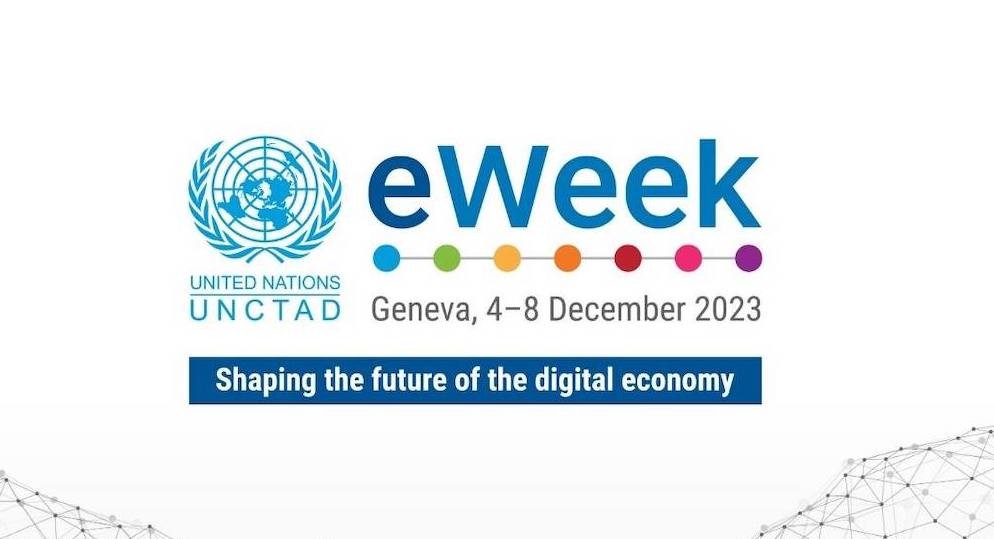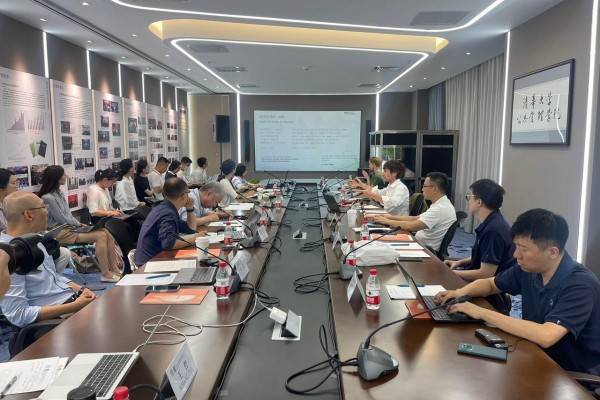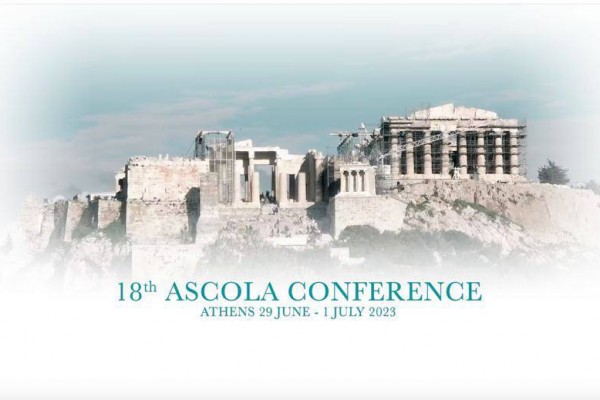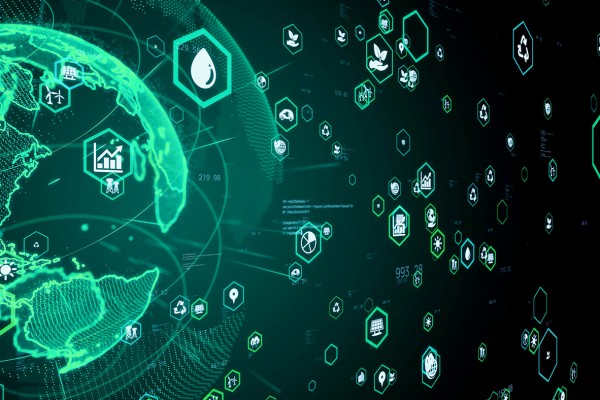On December 5, within the framework of UNCTAD eWeek, the International BRICS Competition Law and Policy Centre held a session themed "Ecological Thinking on Digital Ecosystems for Better Competition Policy". The event was held offline in Geneva, Switzerland.
The digitalization of the economy has radically changed the usual business models of companies. Today, several products can be combined into complex, interconnected and self-developing ecosystems of platforms that offer multiple products covering different sectors and generate enormous value from user engagement. As session moderator Elena Rovenskaya, Program Director at the International Institute for Applied Systems Analysis (IIASA), noted, such digital ecosystems are essentially complex adaptive systems and thus understanding the laws behind such systems may provide regulators with new, efficient tools to tackle ecosystem power in the digital economy.
Alexey Ivanov, Director of the BRICS Competition Centre, addressed the peculiarities of digital ecosystems and ecoantitrust, an innovative method for analyzing digital ecosystems that the BRICS Competition Centre is developing jointly with the IIASA Institute. Given the dynamic nature of digital ecosystems, the usual industrial approach to regulation and disparate actions by antitrust authorities are becoming less and less effective. "Today, remedies must be developed taking into account the cyclical nature of the natural development of ecosystems. To do this, we must understand their complex nature, how they evolve and what cycles they go through," said Alexey Ivanov. The matrix developed as part of the ecoantitrust project helps to compare the stages and forms of interaction in natural and economic, primarily digital, ecosystems. Understanding the dynamics of these processes will allow regulators to develop adaptive remedies.
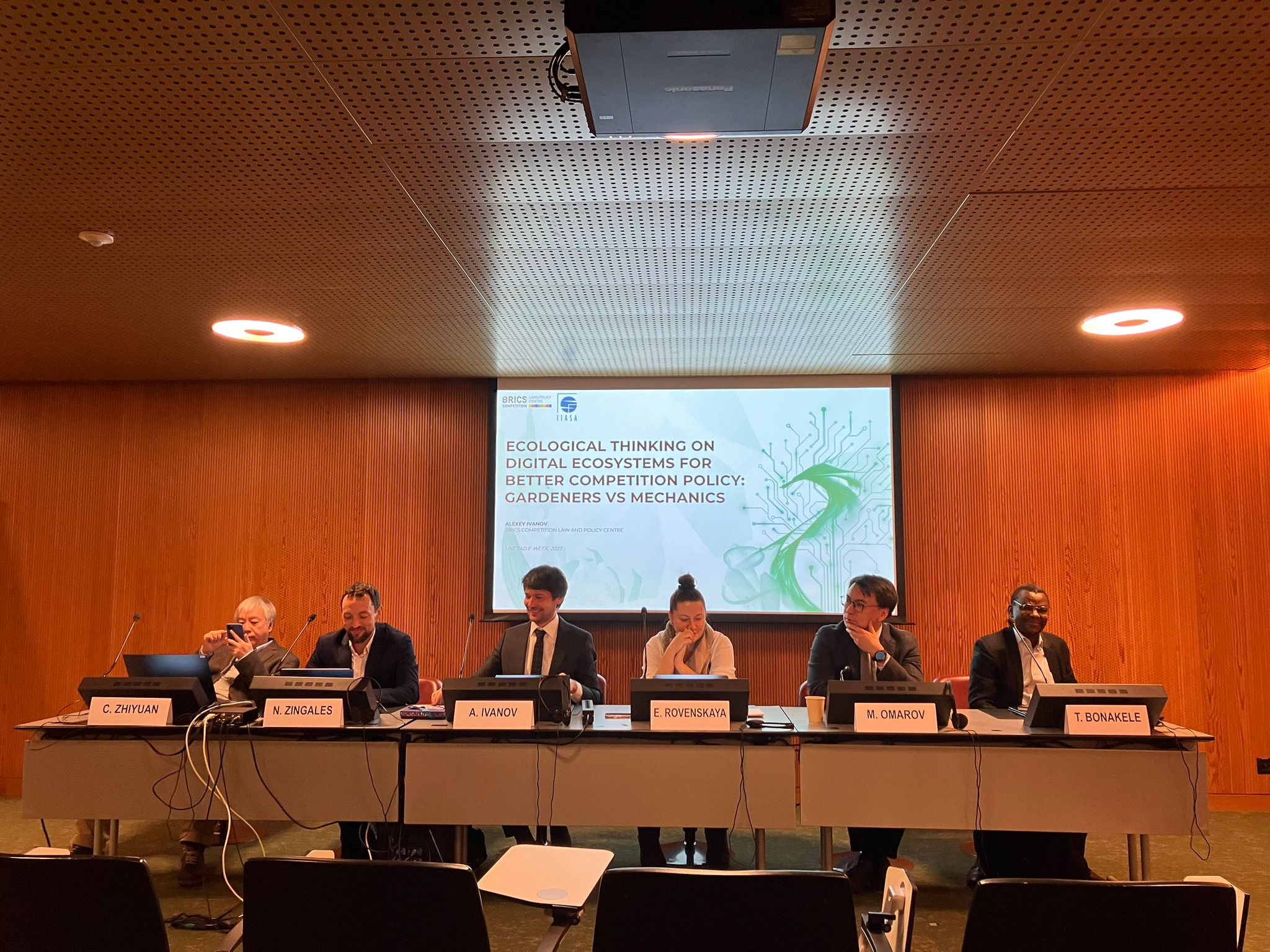
"The problem with the new reality is the inability to have the full range of information about the operation of digital platforms. So we must either become adaptive — which was the original nature of antitrust — or intervene. Antitrust agencies have been indecisive for a long time, resulting in a huge level of concentration and growth in the market power of digital monopolies,"
Ivanov emphasized. It is ecoantitrust, based on parallels between natural and digital ecosystems, that can be the answer to the current challenges facing antitrust regulation today, he believes.
Elements of the ecosystem approach to analyzing digital platforms are already being applied by the regulator in Kazakhstan, in particular, during an investigation into one of the popular online cab ordering services, said Marat Omarov, Chairman of the Agency for Protection and Development of Competition of the Republic of Kazakhstan. "As part of the approach proposed by the BRICS Center, we focus on dynamic remedies that help to act in the interests of both consumers and drivers, and at the same time do not hinder innovation," he noted.
Cui Zhiyuan, Professor at School of Public Policy and Management at Tsinghua University (China), spoke about the prospects for an environmental approach in antitrust regulation in the context of climate change, consumer protection and privacy issues. Data is a key resource for digital ecosystems and is sometimes appropriated by strategically positioned players. The ecosystem approach helps determine at what stage regulatory intervention is needed to prevent a data-owning company from extending its power to other markets. Several examples with similar cases from Brazilian antitrust authority CADE were given by Nicolo Zingales, Professor at Getulio Vargas Foundation (FGV Direito Rio).
"The ecosystem approach is very important to better understand the ecosystem power and how specific data, as well as other resources, can be used in secondary markets. We also need to understand what will be the proper remedy for such strategies and how to track the effectiveness of the measures we propose,"
said Nicolo Zingales.
The mechanistic approach used in competition regulation today is not applicable to fast-changing digital markets, agreed Thembinkosi Bonakele, former Commissioner of the Competition Commission of South Africa and Professor at the Wits University. In today's digital realities, he noted, regulators not only have to deal with post-facto violations, but also try to prevent them, and the ecoantitrust method can make this task much easier.
The discussion also touched on the issue of supporting regulators in developing countries, who are often inexperienced and have limited resources. Teresa Moreira, Head of the Competition and Consumer Policies Branch at the United Nations Conference on Trade and Development (UNCTAD), thanked the BRICS Centre experts for the report and expressed her willingness to promote cooperation and exchange of experience among agencies within UNCTAD.
"UNCTAD has a lot of work to do to create a new vision and methodology that developing country regulators can apply. They need to be provided with infrastructure and relevant analytical tools, because the trends in digital markets around the world are very similar,"
emphasized Alexey Ivanov.
UNCTAD eWeek was held in Geneva from 4 to 8 December. The theme of this year's event was "Shaping the Future of the Digital Economy". Ministers, senior government officials, business leaders, representatives of international organizations, academia and civil society from a total of 130 countries participated in the UNCTAD eWeek. Sessions focused on discussing innovation, best practices and possible antitrust policy directions and concrete steps to help shape an inclusive and sustainable future of the digital economy.
